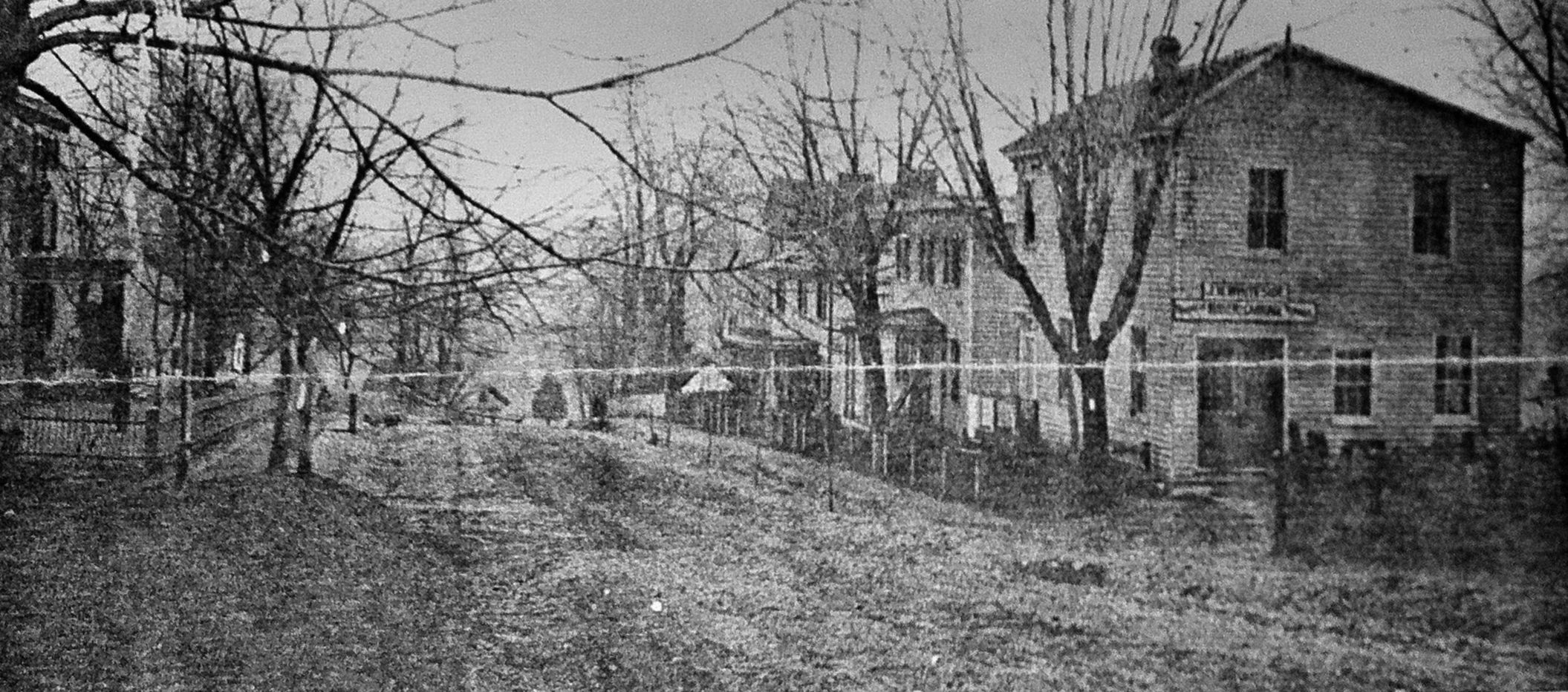Explore Brookeville's Community
Brookeville sat at the crossroads of two very different worlds in the summer of 1814. Though the town was surrounded on all sides by sparsely-populated rural farmland, it was also connected to the rapidly growing and industrializing cities of Baltimore and Washington, D.C. by a network of roads. While these connections made Brookeville's residents modern and metropolitan, those who lived in the town were still entrenched in their rural community and Quaker faith. The combination of these forces contributed to Brookeville's distinctive character and fascinating history.
Read below about many of the aspects of Brookeville's unique character and history.
"Fewer inducements to vice": Brookeville's Quaker Identity
Most of Brookeville's residents were members of the Society of Friends, a religion which forbade alcohol consumption, violence, owning slaves, and preached pacifism. The people who lived in Brookeville were greatly influenced by both of these worlds and their strong devotion to their Quaker faith, which left an undeniable mark on the town and shaped the community that the President found in the summer of 1814.
Politics and Community Involvement in Brookeville
Even though the Quaker meeting warned against it, politics played a role in Brookeville. While some of Brookeville's wealthy and well-connected residents voted, advocated for political issues, and held public office, Brookeville's Quakers greatest influence was in their most local community and religious society.
"This iniquitous practice": Brookeville's Slave Problem
In the 18th century, the tenets of Quakerism contradicted the lucrative, yet morally corrupt slave system. Though most Quakers residents eventually freed all of their slaves, enslaved people were a presence in Brookeville through the 1830s, almost sixty years after the Society of Friends ordered all Quakers to manumit their slaves.
An "oppressed people": Brookeville's Free Black Community
The early nineteenth century was rarely friendly to free African Americans. Though racism was far from absent in Brookeville, a large free African American community thrived near Brookeville.
Triadelphia: Brookeville's Failed Cotton Experiment
Just
before the War of 1812 began, Brookeville's industrious Quakers
founded a cotton factory on the banks of the Patuxent, four miles
northeast of the town. Even though the venture was doomed from its
start, the factory operated for over seven decades. Discover the
history of this lost town, which today lies under fifteen feet of
water.

A view of Market Street in Brookeville sometime in the late nineteenth century. The house once owned by Isaac Briggs can be seen on the right. Courtesy of the Sandy Spring Museum.
